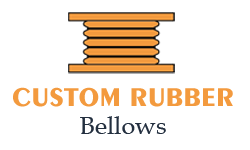Everything You Should Know About Rack and Pinion Steering Paris On
The components of a rack and pinion boot Paris On steering system are a pinion (a circular gear) and a rack (a linear kit). The mechanism transforms a rotating motion into a linear motion. Instead of the recirculating ball steering seen in larger trucks, larger SUVs, and all heavy-duty vehicles, most automobiles, small trucks, and SUVs are equipped with a rack and pinion system.
Know every detail about rack and pinion boots with this guide from Custom Rubber Bellows.
Rack and Pinion
The rack and pinion bellow Paris On steering moves linearly as the pinion rotates, turning the vehicle's wheels left or right. Railways frequently use rack and pinion systems. To help trains move up steep inclines, racks between train tracks work with pinions attached to engines and train cars.
While a rack and pinion system may appear complex, it is a gear fastened to a toothed bar. A pair of tie rods are used to attach the bar. To specify the specifics and measurements of the teeth in the design of a generating tool, such as a hob or a gear cutter, a generating rack is a rack outline. Simple linear actuators frequently include a rack and pinion in their design. A motor or a hand crank is used to turn the pinion's shaft to produce linear movement.
Applications for rack and pinion
Rack and pinion bellow boot systems have more uses than just driving vehicles and small trucks, which is why most customers are familiar with them. In addition to helping trains ascend steep inclines, rack and pinion systems offer superior brake control, particularly in snowy and icy situations. Research shows rack and pinion systems are common elements in most stair lifts. Hydraulic or electrical power is frequently used to drive the rack and pinion mechanism.
The Mechanism of Rack and Pinion Steering
According to top research, rack and pinion steering functions by converting the circular, linear motion required to turn the wheels from steering wheel motion using a gear system. The gear set is housed in a metal tube. The rack can be attached to an axial rod using the apertures on each end of the line. The steering shaft is attached to the pinion gear so that when the Steering Rack Bellows Paris On wheel is turned, the gear will rotate and move the rack. A tie rod end is connected to the spindle by the axial rods.
A cylinder with a piston in the center is part of the rack. The rack is attached to the piston. On either side of the piston, there are two fluid openings. The power assist is created by forcing the piston to move by applying more fluid pressure on one side of the piston. This compels the Steering Rack and Pinion Bellows to move as well.
There are two primary purposes for the rack and pinion gear set:
- Transfiguring the rotating motion of the steering wheel into the required linear motion for the vehicle's wheels to turn
- Reduced gears make it simpler for the steering wheel to turn the wheels.
The ratio of the rack and pinion to steer
According to research, the steering ratio is the proportion between the amount the wheels turn and how far the steering wheel turns. For instance, the steering ratio of a car is 18:1 if a 360-degree rotation of the steering wheel makes the wheels turn 20 degrees (360 divided by 20). A greater steering ratio necessitates more steering wheel turns to turn the wheels. It is preferable to have a smaller steering ratio because it denotes more responsive steering.
Light sports cars typically have a smaller steering ratio than significant automobiles and trucks. Because of power steering, all consumer automobiles now have a better Steering Rack & Pinion Bellows ratio.
Power Pinion and Rack
According to various research, cars with power steering have slightly different rack and pinion configurations. Two steel tubes are located along the side of a power rack and act as pressure and return lines in addition to turning the left and right. The power rack is connected to a cylinder with a piston and two fluid openings. The rack moves due to the piston being moved by high-pressure fluid. An electric pump is used in electric systems.
Problems with Rack and Pinion Steering
Because steering is necessary for driving, it's important to be alert for any issues so you can fix them as soon as possible. According to research, typical steering problems include:
A tight steering wheel: If you notice that turning the wheel is more difficult, there may be an issue with the steering rack bellows or insufficient pressure in the power steering system. Usually, adding more power steering fluid will fix this problem.
Leakage of power steering fluid: If your car is leaking power steering fluid, you must have it fixed right away to prevent damage to the transmission or gears.
Grinding sounds: A steering gearbox with insufficient lubrication can typically make grinding noises. It may be necessary to replace the gearbox.
Burning oil: The smell of power steering fluid is comparable to that of burning oil. If you smell it while driving, stop as soon as it's safe. Your gearbox can be too hot and catch fire.
The rack and pinion boot Paris On steering system has reduced manufacturing costs, increased fuel efficiency, and simplified vehicle handling. Undoubtedly, it represents a major leap for the automobile sector






